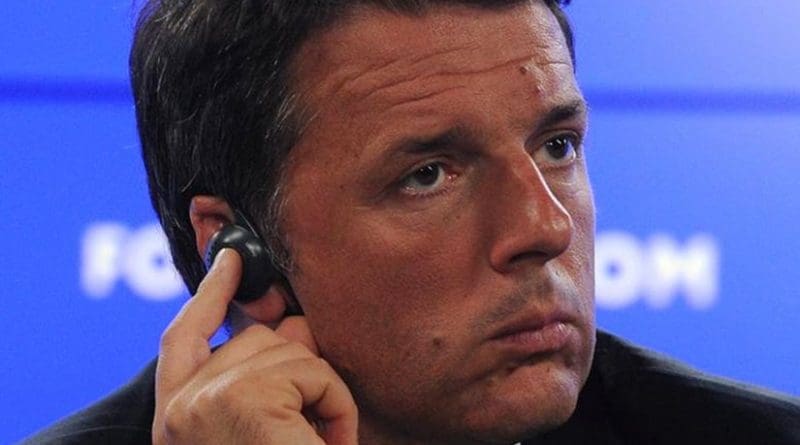Italy’s Renzi On Ice: What Happens Next
By EurActiv
By Italia Oggi
(EurActiv) — Sunday’s Italian referendum (4 December) ended up claiming the scalp of the peninsula’s Prime Minister, Matteo Renzi, after he pledged to resign if the country voted no to his reforms. But what happens now?
After talking with President Sergio Mattarella, it was decided that Matteo Renzi would delay his resignation until Friday (9 December), after the country’s budget law is hopefully pushed through by the Senate.
So what happens then? It is a legitimate question, given the number of possible scenarios available following the referendum result.
One option that has been bandied around is a technocratic government, but that seems like a difficult road to go down, given the political majority needed for it to work. After the sharp contrast that emerged in Sunday’s vote, it is verging on impossible.
The other two solutions are a so-called “special purpose” government or a “techno-political” government.
In case of the first option, an institutional figure, like President of the Senate Pietro Grasso, would be asked to guide the government and push through a new electoral law, with the aim of ensuring the smooth day-to-day functioning of government and calling a new election in 2017.
The second option would be to entrust leadership to a figure close to the current government, with an emphasis on economic priorities.
That new executive would also be able to see out the current term and the name of Finance Minister Pier Carlo Padoan has been linked to the job.
The path chosen by Renzi pointed towards a very short period of transition, but the pros and cons of how to proceed are still being weighed up by the president’s office.
The idea is to push through the budget law as quickly as possible and for Renzi to stay at Palazzo Chigi until the green light is given, presumably on Friday (9 December).
The preferable option will be the one that minimises the impact of Renzi’s departure, particularly in terms of the financial markets. Damage as so far been negligible, given that many traders correctly predicted that the vote would go against Renzi.
What happens to the outgoing PM is also unclear, especially what role he will fulfill in his own Democratic Party (PD). Parliament sources this morning (6 December) did not rule out the idea of Renzi acting as secretary during the transition period, but the former Florentine mayor’s camp denied that this would be the path taken.
Renzi will have met with his ministers and grandees in the PD, before taking stock tomorrow afternoon (7 December); even the wing of the party led by Dario Franceschini, former national secretary of the group, has urged caution.

